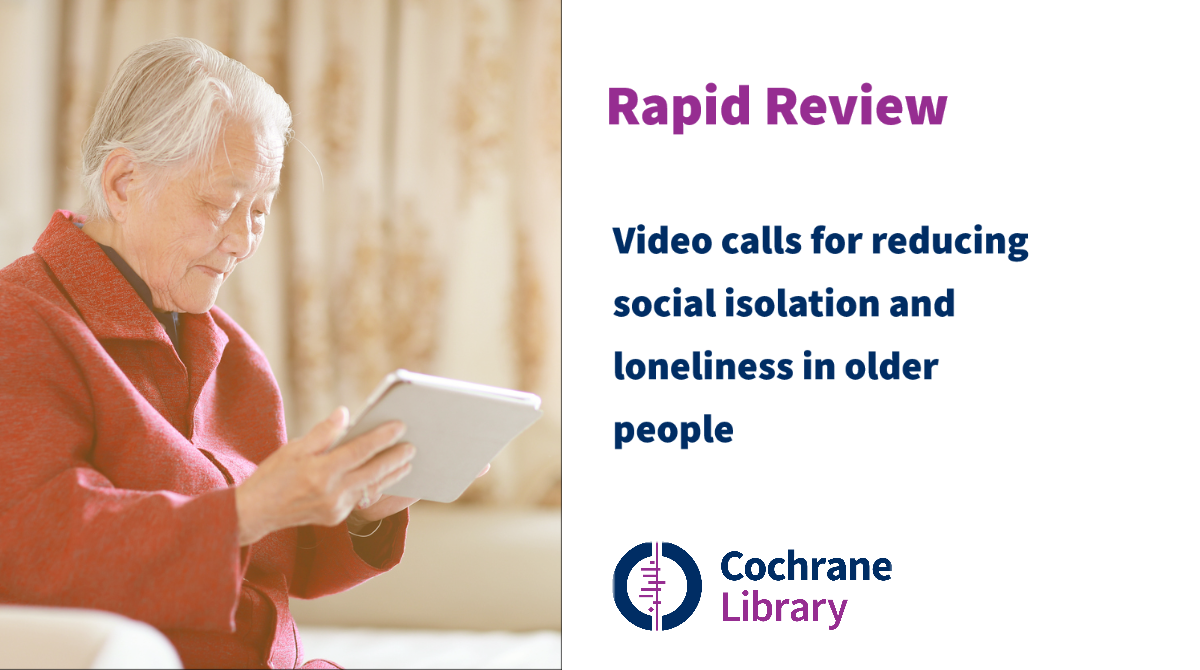
New Cochrane Rapid Review - Video calls for reducing social isolation and loneliness in older people
Many countries have introduced restrictions on people’s movement to protect them from COVID-19. Visiting older friends and relatives may not possible. Can calling Grandma with a video call help her feel less lonely and isolated? Can video calls affect symptoms of depression or quality of life? What does the evidence say?
COVID-19 is spreading rapidly, so we needed to answer this question quickly. This Rapid Review was done in a short space of time as part of Cochrane’s organizational effort to meet the need for up-to-date summaries of evidence to support decision-making in combating the effects and impact of COVID-19
The review authors looked for studies that randomly allocated older people to different groups to use either video calls, another method of keeping in touch, or no particular method (usual care), with the aim of examining their effects on loneliness or social isolation. For this review they considered older people to be aged 65 years or above and considered video calls to be calls made via the internet, using computers, tablets or smartphones.
The team included three studies, with 201 participants, in this review. All three studies took place in nursing homes in Taiwan between 2010 and 2020 and compared video calls to usual care.

The evidence from these three studies suggests that video calls have little to no effect on loneliness after three, six or 12 months. There is also little to no difference in symptoms of depression after three or six months, although after a year, older people who used video calls may have had a small reduction in depression compared to those who received usual care. Similarly, video calls may make little to no difference to older people’s quality of life.
Our certainty (confidence) in the evidence was limited because we found few studies with a small number of participants, and they either used unreliable methods or did not fully describe their methods. Also, all of the participants were in nursing homes, so our findings may not apply to older people living in other places, such as their own homes. Also, some of the participants may not have been feeling lonely or socially isolated.
Based on the current evidence, we are unable to say whether video calls help to reduce loneliness in older people. We need more studies, that use rigorous methods to investigate this question, and focus on older people who are lonely or socially isolated.




